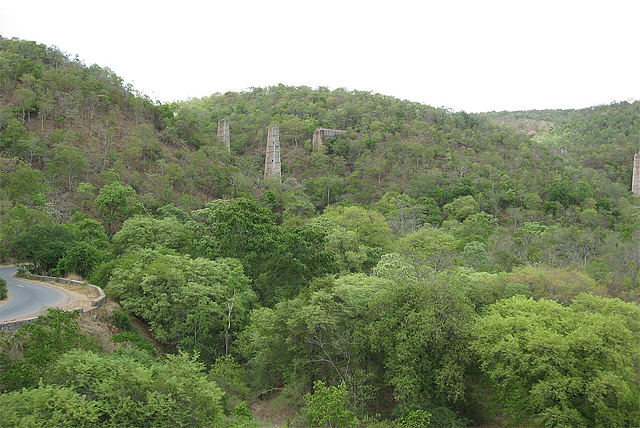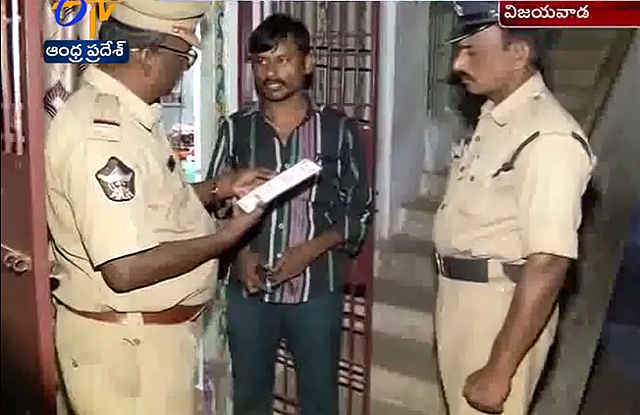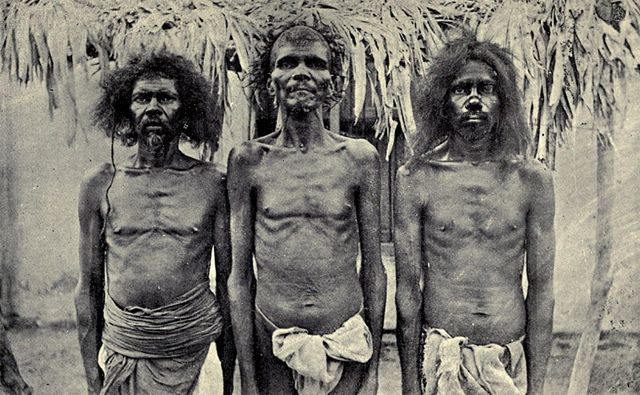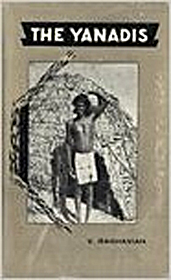An investigation of a rape and murder in Andhra Pradesh became nasty for the Yanadi recently when the police rounded up and then roughed up some villagers. But unlike the tacit avoidance of conflict with authority figures that has characterized them in the past, these Yanadi protested to higher authorities.

After the police began picking up Yanadi in the Pedacherlopalle Mandal of the Prakasam District in Andhra Pradesh and not returning them to their homes, around 100 Yanadi abandoned their sheep and goats and fled into the forest. A news story in The Hindu reported that the affected villages were Adivulapalli, Guntupalli, Muddapaddu, Neredupalli and Veluturivaripalli. One Yanadi woman, Indla Varamma, told the reporter that neither her father, Malyadri, nor her uncle, Kondiah, had returned home after being captured by the police the previous week and taken in for questioning.
A Yanadi woman, K. Adamma, told the newspaper that they were being threatened by the police that they would suffer if they did not tell them where to find the primary suspect, a Yanadi. A man, K. Ramanaiah, said basically the same thing: “Just because the suspect happens to be from the Yanadi community, we are being abused and harassed by the police.” Some of the Yanadi decided to screw up their courage and protest. They went to the city of Ongole, the capital of the Prakasam District, to appeal for help.

A group of the abused villagers appeared before M.G. Priyadarshini, the Principal District Judge and Chair of the District Legal Services Authority (DLSA). They showed the judge their injuries and their torn clothing and said they were afraid to return to their villages without being protected from more abuse by the police. Judge Priyadarshini told them to not worry any longer—the DLSA would make sure that they would be protected.
The Yanadi were sent to a shelter for homeless people run by the Ongole Municipal Corporation where they were provided with food and accommodations and told they should stay as long as they wished. The judge referred the problem on to the new Superintendent of Police for the Prakasam District, Bhusarapu Satya Yesu Babu, who had just been promoted to the office in June. He had publicly promised that the police would not harass petitioners who go to them with problems. He responded to this latest challenge with alacrity.
Mr. Yesu Babu instructed all police in the district to not use any intimidating tactics when they are investigating crimes. They have some definite clues in the pending murder case and they expect to make an arrest soon. He added, according to The Hindu, “Action will be taken in case of any harassment during [the] probe.” The head of a district organization, Peram Satyam, echoed the statement by the police chief by saying, “innocent tribal people should not be harassed.” Another official, N. Ankamma Rao, said the district staff would get the names of Yanadi who had been harassed and try to give the adults wage employment and get their children into schools.

The major interest of this story is not so much the police brutality, or even the tones and actions of the judge and the officials, as it is the reactions of the Yanadi themselves in attempting to do something constructive to correct the abuses. Men being brutalized by police simply because they happen to be Yanadis has been a factor in their lives going back 150 years or more. Reddy’s 1947 article “The Yanadis: A Criminal Tribe of the Deccan” pointed out that the problems for that society had begun because the people had been excluded from Hindu society due to the caste system. As a result, some had learned to survive through burglary and theft.
The British coped with such crimes by stigmatizing many castes and tribal societies as “Criminal Tribes.” The so-called Criminal Tribes Act of 1871 and its many modifications since required all adult males in societies that had been so-labeled to be properly registered and to report to police officials in the nearest village at 11 at night and again four hours later. Daily. An accused man could be convicted of a crime solely because he had not been at home on any night in question.

In his chapter titled “Yanadi Crime,” Raghaviah (1962) explored the lingering effects of the Criminal Tribes Act on the people. He wrote that one of the ways they reacted to police questioning was to fear and abhor the process. If questioned, a Yanadi man would stand and tremble. “The fright created in him by the mere sight of a police constable is so great that he quickly loses his composure (p.289),” which leads him to make false statement and get slapped in prison.
Raghaviah added that because of their history of persecution during the British rule, the Yanadi developed the habit of not answering questions directly through various circumlocutions. The author described how police, in his experience, would respond to Yanadi evasive techniques with “a slap accompanied invariably by a volley of filthy abuse (p.292).” They learned to never challenge authority.
The fear of uniformed police clearly persists among the Yanadi—their first reaction a couple weeks ago was to flee into the forest. But it appears from this news report as if they are developing the strength to challenge abuses and to appeal for help when necessary. It is also encouraging that a sense of fairness and justice toward the tribal society is taking hold among Andhra Pradesh officials. Hopefully, the rank and file police officers will recognize the peacefulness of the Yanadi and change their ways as well.